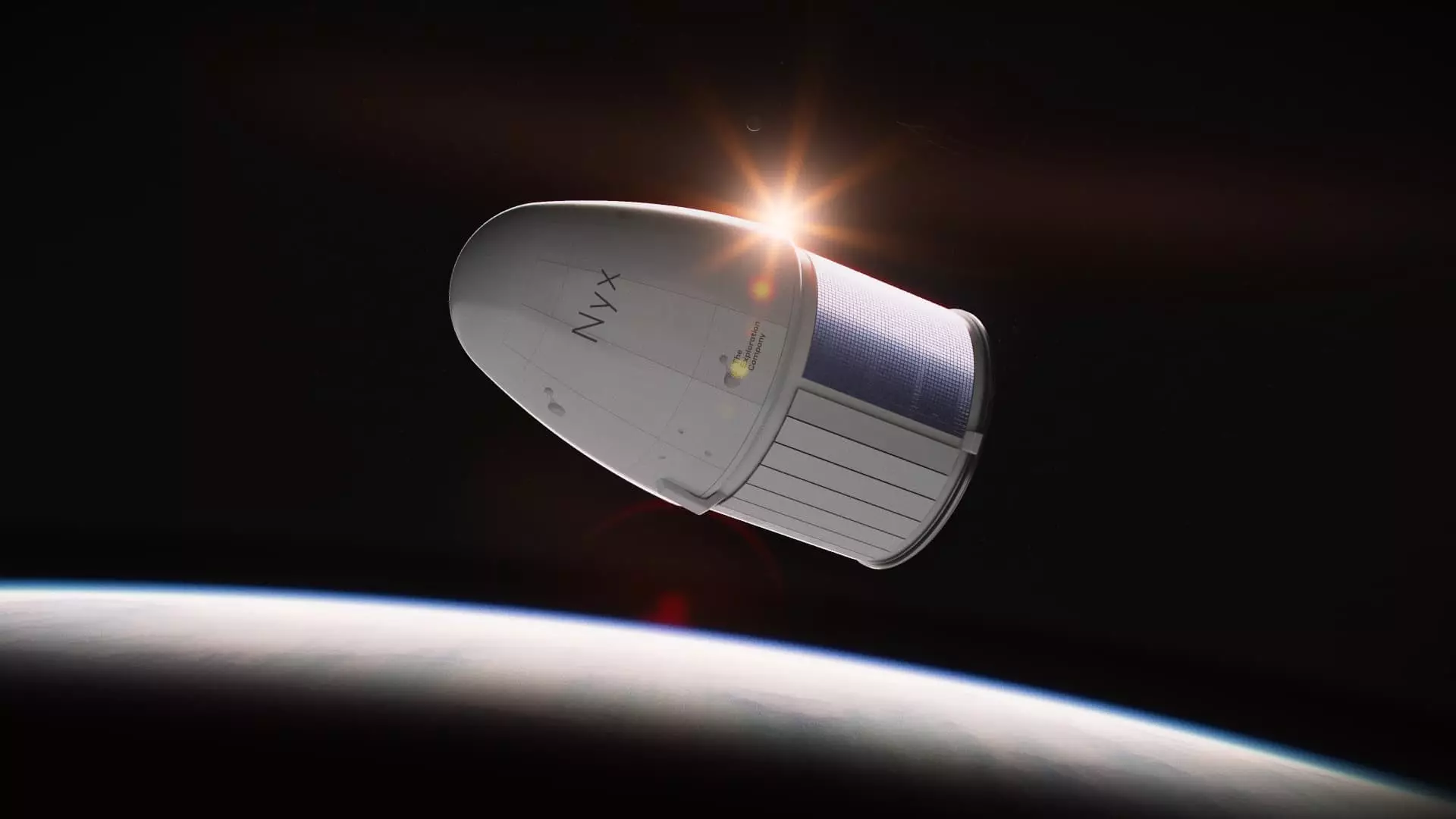In a bold move that underscores the increasing competition and innovation within the aerospace sector, The Exploration Company (TEC) has recently announced the successful attainment of $160 million in funding aimed at advancing its pioneering spacecraft designed for transporting astronauts and cargo to space stations. Leading the investment round are renowned venture capital firms Balderton Capital and Plural, alongside significant backing from strategic public funds such as the French government-supported French Tech Souveraineté and the German DeepTech & Climate Fonds. This substantial financial boost is set to play a crucial role in propelling TEC’s flagship product, Nyx, into the forefront of space travel solutions.
Nyx stands out as an ambitious endeavor in the rapidly evolving landscape of space exploration. Unlike many one-time-use capsules, Nyx is designed with reusability in mind. This feature not only makes the capsule environmentally favorable but also presents a cost-effective solution for future missions. The transition from launch to re-entry following payload deployment signifies a strategic advantage—ensuring that once Nyx delivers its mission load, it can be prepared for subsequent flights. This model aligns with a growing trend in the industry, where sustainability is becoming as vital as technological advancement.
Helène Huby, founder and CEO of TEC, emphasized the burgeoning market potential during a recent interview. A noteworthy statistic reveals that the sector is witnessing growth rates exceeding 10% annually, driven by an influx of nations aspiring to establish their own presence in space, whether it be for crewed missions or lunar exploration. Huby reflected on the urgency of diversifying space travel capabilities, stating, “We cannot only bet on SpaceX.” The call for establishing European capabilities in the space arena illustrates a shift towards country-specific solutions that foster autonomy and innovation.
As TEC gears up to launch Nyx, it faces competition from formidable players, including SpaceX’s Dragon capsule, as well as challenges from emerging space agencies in China and Russia. Despite the saturated market, TEC’s strategy focuses on providing an alternative to the existing giants and positioning Europe as a significant contender in the global space framework. By developing Nyx, TEC not only aims to capture market share but also to create a viable option for nations looking to enhance their space programs without relying solely on American technology.
Currently, TEC is poised to unveil the second iteration of Nyx, with launches anticipated in the upcoming year and an ultimate version set for 2028, indicating a phased progression that allows for continuous improvement based on feedback and technological advancements. The collaborative plans with the European Space Agency further signify that TEC is not merely an independent venture but part of a broader narrative of international cooperation in space exploration.
As global interest in space intensifies, the necessity for reliable infrastructure to support missions also grows. Huby notes that the increasing number of astronauts means a corresponding rise in the demand for cargo transportation. In this dynamic environment, TEC is strategically positioned to meet this demand. The company has already secured mission contracts valued at an impressive $800 million, collaborating with noteworthy entities like Starlab, which is at the forefront of designing new space stations, and Axiom Space.
Notably, the ambitious NASA-led Gateway project aims to establish the first space station in orbit around the moon. This highlights an era of collaborative exploration, where multiple nations and private entities will play roles in enhancing humanity’s understanding of space. TEC’s contributions to developing capabilities for returning cargo safely to Earth could prove to be vital, situating the company as an essential player in the continuum of human space exploration.
With its innovative approach and robust funding, TEC appears set to carve out a significant niche in the competitive landscape of aerospace technologies. By prioritizing reusability and sustainability while planning for collaborative advancements, TEC is not only responding to current demands but also proactively paving the way for future developments in space travel.
As nations around the world accelerate their space ambitions, TEC stands ready to take the lead in European space exploration, ensuring that the continent has a strategic, independent voice amidst the rush towards the final frontier. The next few years will undoubtedly be critical for TEC, presenting both challenges and unparalleled opportunities as they work towards realizing the full potential of Nyx and redefining access to space.

